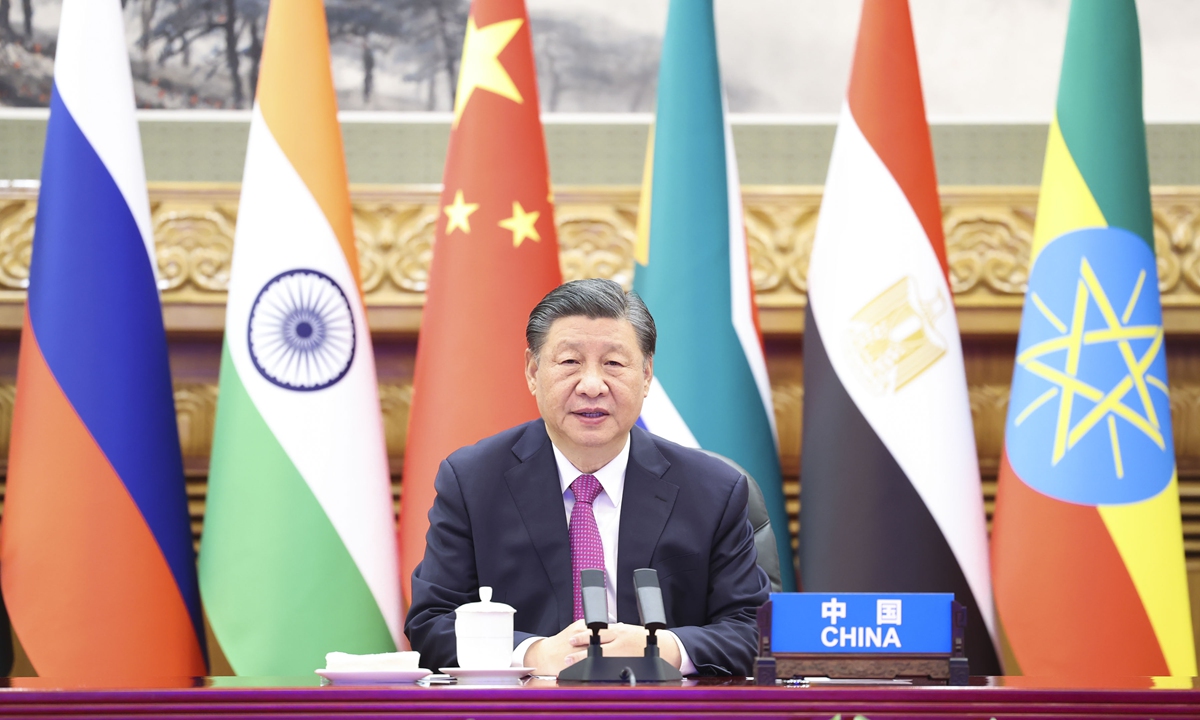Chinese President Xi Jinping emphasized the urgent need for a cease-fire and a two-state solution in the ongoing Palestinian-Israeli conflict during the BRICS extraordinary virtual summit on November 19. The summit marked the first gathering since the group’s expansion in August.
Xi, addressing the summit, outlined three crucial imperatives: an immediate end to hostilities and achievement of a cease-fire, cessation of all forms of violence and attacks against civilians, and ensuring humanitarian corridors while halting collective punishments on the Gaza population. The international community, he stressed, must take practical measures to prevent the conflict from spilling over and destabilizing the entire Middle East region.
The summit, chaired by South Africa, witnessed the participation of new members, including Saudi Arabia, Argentina, Egypt, Ethiopia, Iran, and the United Arab Emirates. Russian President Vladimir Putin advocated for a political solution to the Israeli-Palestinian conflict, holding the failure of U.S. diplomacy in the region responsible.
Xi asserted that the root cause of the situation lies in the long-ignored rights of the Palestinian people to statehood, existence, and return. He reiterated the necessity of a two-state solution and the establishment of an independent State of Palestine for sustainable peace and security in the Middle East.
The collective voice of BRICS countries, representing the Global South, offers a unique perspective on the Palestine issue, differing fundamentally from that of the U.S. and the West. This united stance is gaining importance, especially as the U.S. has not exerted sufficient pressure on Israel for a cease-fire, leading to growing disappointment in the Arab world.
Xi highlighted China’s commitment to justice and peace, expressing support for an international peace conference and providing humanitarian assistance to ease the crisis in Gaza. China’s impartiality and the absence of self-interest in the Middle East have garnered recognition, positioning China to play a significant role in de-escalating the conflict.
While the BRICS summit may not directly resolve the conflict, the unity of developing countries is considered crucial in addressing the crisis, as the U.N. expects more from the BRICS mechanism in pushing for a cease-fire and de-escalation.
















